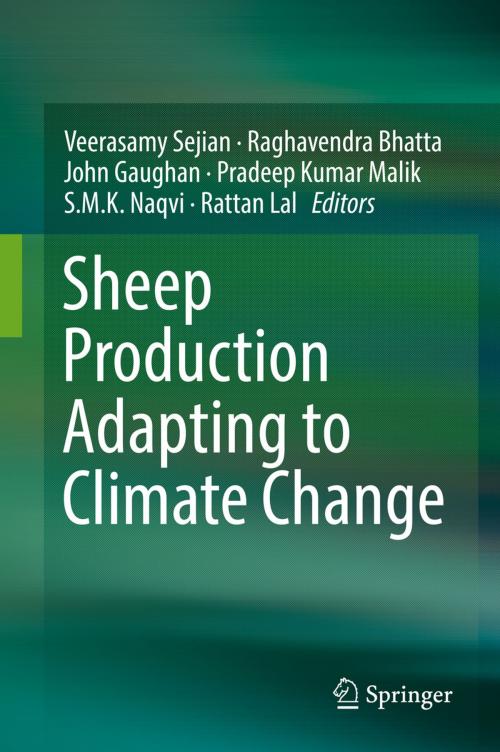Sheep Production Adapting to Climate Change
Nonfiction, Science & Nature, Science, Biological Sciences, Ecology, Technology, Agriculture & Animal Husbandry| Author: | ISBN: | 9789811047145 | |
| Publisher: | Springer Singapore | Publication: | June 20, 2017 |
| Imprint: | Springer | Language: | English |
| Author: | |
| ISBN: | 9789811047145 |
| Publisher: | Springer Singapore |
| Publication: | June 20, 2017 |
| Imprint: | Springer |
| Language: | English |
This book presents a compilation of the latest findings from reputed researchers around the globe, covering in detail climate change and its effects on sheep production. In the current global climate change scenario, information related to its impact on livestock agriculture is lacking.
The negative impacts of climate change are already being felt by all livestock species. Further, the mitigation and amelioration strategies that are applicable for one species may not hold true for another. As such, concerted research efforts are needed to identify species-specific strategies for mitigation and adaptation.
With that goal in mind, this book is the first of its kind to gather comprehensive information pertaining to the impact of climate change on various aspects of sheep production. It also sheds light on the role of sheep with regard to the global greenhouse gas pool. The book highlights the status quo of sheep production from climate change perspectives and projects the significance of adapting future sheep production to the challenges posed by climate change.
It addresses in detail the various adaptations, methane mitigation and amelioration strategies needed to sustain sheep production in the future. In addition, the book presents development plans and policies that will allow the sheep industry to cope with current climate changes and strategies that will lessen future impacts.
Bringing together essential information prepared by world-class researchers hailing from different agro-ecological zones, this book offers a unique resource for all researchers, teachers and students associated with sustaining the sheep production in the face of global change.
This book presents a compilation of the latest findings from reputed researchers around the globe, covering in detail climate change and its effects on sheep production. In the current global climate change scenario, information related to its impact on livestock agriculture is lacking.
The negative impacts of climate change are already being felt by all livestock species. Further, the mitigation and amelioration strategies that are applicable for one species may not hold true for another. As such, concerted research efforts are needed to identify species-specific strategies for mitigation and adaptation.
With that goal in mind, this book is the first of its kind to gather comprehensive information pertaining to the impact of climate change on various aspects of sheep production. It also sheds light on the role of sheep with regard to the global greenhouse gas pool. The book highlights the status quo of sheep production from climate change perspectives and projects the significance of adapting future sheep production to the challenges posed by climate change.
It addresses in detail the various adaptations, methane mitigation and amelioration strategies needed to sustain sheep production in the future. In addition, the book presents development plans and policies that will allow the sheep industry to cope with current climate changes and strategies that will lessen future impacts.
Bringing together essential information prepared by world-class researchers hailing from different agro-ecological zones, this book offers a unique resource for all researchers, teachers and students associated with sustaining the sheep production in the face of global change.















